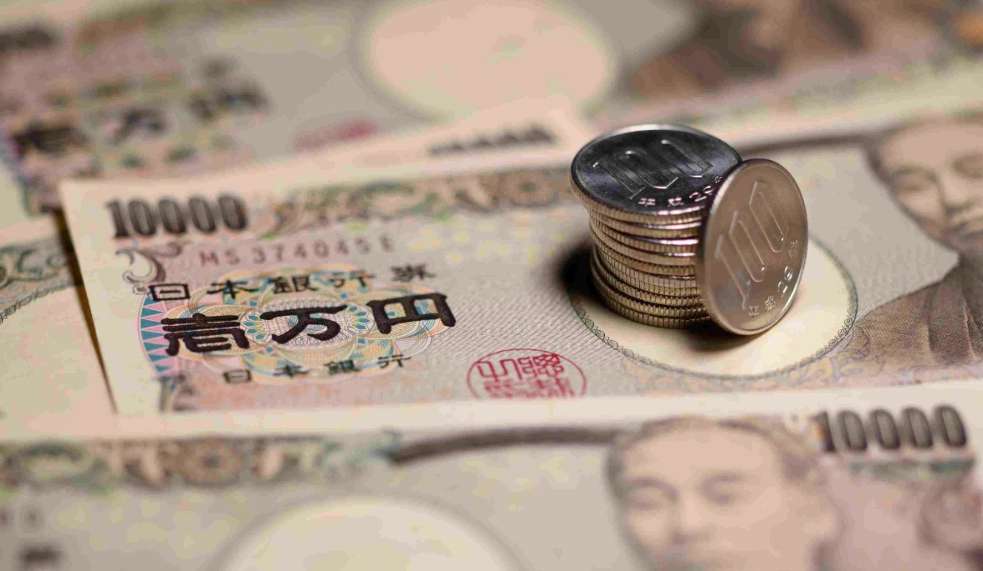Bank of Japan Exits Bank Stocks Early
Advertisements
The Bank of Japan (BOJ) is on the verge of completing a significant financial maneuver—it is set to finalize the selling of equity stakes it acquired two decades ago during the turbulent financial crisis that plagued the nation’s banks. This pivotal move has sparked considerable curiosity surrounding the fate of its extensive holdings in exchange-traded funds (ETFs). The impending conclusion of this long process portends broader implications for market stability and investor sentiment.
Recent disclosures about the BOJ’s financial position reveal that its equity assets stood at a book value of ¥528 billion (approximately $3.45 billion) as of February 10. At the current pace of divestment—around ¥100 billion per month—the central bank could effectively rid itself of all remaining assets within the next five months. Earlier in 2015, the BOJ had indicated a target to wrap up these sales by March 2026, showcasing its strategic imperative in unwinding interventions made during a time of financial distress.
This situation has become a focal point for investors and market observers alike. Many experts who closely monitor the BOJ believe that it is unlikely for the central bank to simultaneously divest the equity holdings acquired from banks and its ETF assets due to concerns that both actions could trigger turbulence in the market. The accelerated completion of the bank equity sales raises the prospect that the BOJ might signal, as early as this year, its intentions regarding the ETFs, thereby potentially reshaping investment landscapes.
The ETF holdings represent a crucial element of the policy framework being pursued by BOJ Governor Kazuo Ueda. As he adeptly navigates the complexities of unwinding a super-accommodative monetary stance inherited from his predecessor, Ueda has been strategically reticent about disclosing specific plans concerning ETFs, even while he has raised interest rates and moved to abandon yield curve control measures.

Over the past year, Ueda has executed three interest rate hikes, alongside announcing a quantitative tightening regime that involves shedding significant amounts of government bonds. Despite these bold moves, he reiterated last month that he requires additional time to evaluate the future of ETFs—a matter he considers intricate and delicate.
According to the latest data, the market value of the BOJ's ETF holdings is approximately ¥37 trillion ($242 billion). A report from the BOJ further indicates that as of September 30, these assets held a market valuation of ¥70.3 trillion, underscoring their profound presence within the financial ecosystem.
The BOJ's engagement with equity funds began in December 2010, as part of a broader initiative aimed at propelling inflation. The bank's former head, Haruhiko Kuroda, significantly ramped up this asset purchasing program, ultimately positioning the BOJ as the largest single shareholder in Japanese equities. His successor, Ueda, officially ceased these operations in March of the previous year, marking a pivotal shift in monetary policy.
When juxtaposed with the monumental scale of ETF holdings, the bank equity assets acquired by the BOJ represent a mere fraction—only about fifteen times smaller in size. The central bank's initial foray into purchasing distressed bank stocks started in November 2002, continuing for roughly two years with the objective of salvaging the financial stability by alleviating bad debt burdens in banks. A resurgence of these purchases took place between February 2009 and April 2010 following the global financial crisis, demonstrating the cyclical nature of intervention in Japan’s financial history.
Despite the smaller scale of the bank equities relative to ETFs, it has taken the BOJ roughly a decade to approach the point of divesting its stock assets completely. The selling initiated in October 2007 was momentarily interrupted due to the global financial crisis, but in December 2015, the bank set a new timeline to resume sales in April 2016, extending the selling period over a decade.
As Japan embarks on increasing fiscal expenditures, the dilemma surrounding the fate of the BOJ's ETF holdings has begun to attract the interest of political figures, even as the country grapples with the heaviest public debt burden among developed nations. The Constitutional Democratic Party of Japan has called for a transfer of these holdings to the government, proposing their use to fund essential childcare measures, thereby steering the conversation towards welfare and social investment.
Some analysts suggest that Japan might consider emulating Hong Kong's approach from 1998, where, following a market intervention, authorities pooled their stock assets into a new listed vehicle for efficient disposal. Similar strategies could be applied in Japan, where a dedicated entity could be formed to oversee sales at an opportune moment, or market these assets to institutional investors in private placements.
Even amid increasing scrutiny and discussions related to these assets, there is no pressing urgency for the BOJ to rush into the sale of its ETF holdings. In the fiscal year ending March 2024, the central bank has accrued ¥1.2 trillion in income from ETF dividends, which significantly buffers its financial standing, particularly given that the cost of interest paid to banks is expected to rise along with the normalization of its monetary policy framework.
Since 2021, the BOJ has managed to divest its bank equity holdings at a rate of approximately ¥11.1 billion each month. If the central bank were to apply a similar strategy towards its massive ETF portfolio, analysts project that such a process would extend over an astonishing 279 years, highlighting the daunting task ahead and the complexities embedded in unwinding a legacy monetary policy of unprecedented scale.
Categories
Latest Post
- Bank of Japan Raises Interest Rates
- Special Bond Land Deals Speed Up
- Apple and Alibaba Forge AI Alliance
- Alternative Investments: A New Path to Wealth
- BOJ Rate Hike: Confidence or Uncertainty?
- US Stocks Surge Despite Tariff Threats
- U.S. Stocks Surge Back
- Countdown to Australia's Interest Rate Cut?
- Bank of Japan Exits Bank Stocks Early
- NVIDIA's Sharp Decline